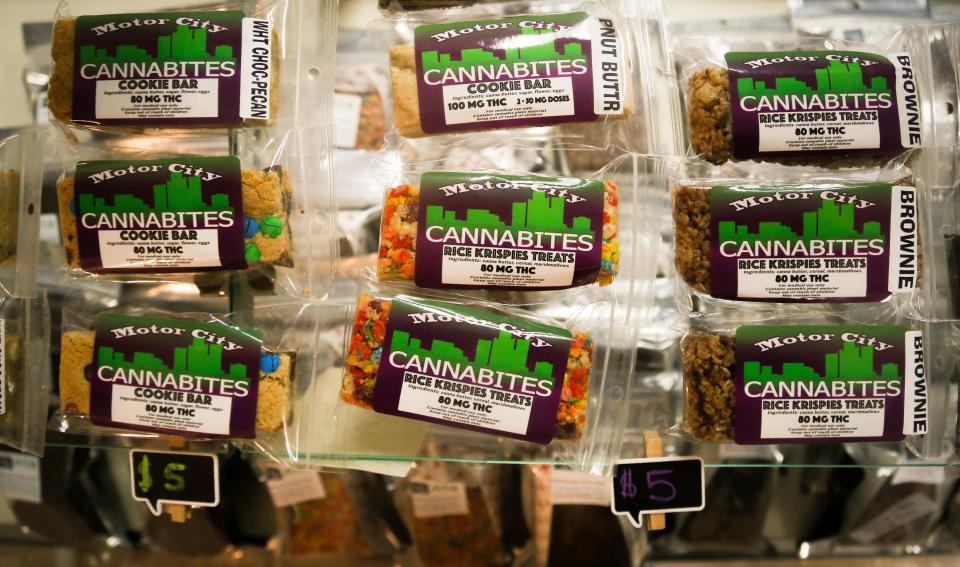Want to learn about cooking with marijuana? Be wary of YouTube, researchers say.
LANSING - Marijuana-infused cakes, cookies and other edibles are legal in Michigan, but residents will likely have to wait until marijuana becomes available commercially next year to purchase baked goods to get baked.
But for those concocting cannabis cuisine at home, a group of Michigan State University researchers and emergency room physicians is advising a bit of caution.
If you're looking at YouTube videos for scientifically-backed baking tips, they say, you’re taking your chances.
“Although few contained inaccurate or dangerous information (e.g., ”you cannot overdose on cannabis”): the majority of videos did not describe the amount or potency of the cannabis ingredient used in cooking,” the researchers wrote in a new research paper published in the American Journal of Emergency Medicine.
More: Pot is legal in Michigan. What to know about recreational marijuana as cannabis becomes OK to smoke
More: Cannabis food, drinks to be 2019's hottest dining trend, top chefs say
Bryan Judge, an emergency medical physician who contributed to the paper, said a lack of reliable information online makes it easy for consumers to miss potential health risks.
“Particularly for very young children who reside in homes where (marijuana-infused) products are available, parents might not be aware of the dangers,” Judge said.
He cited a case in Grand Rapids where a mother cooked a cake with concentrated marijuana oil in butter that ended with her children hospitalized.

Negative symptoms associated with overconsumption range from dysphoria to seizures, Judge said. He also noted that edibles have more pronounced and prolonged effects than simply smoking marijuana.
Using a dozen search terms like cannabutter – the most popular product researchers identified – researchers watched more than 100 videos and documented data such as who made the video and whether the videos had warnings about the risk of consuming too much THC or accidental consumption by underage children.
Lindsey Ouellette, a research assistant with MSU College of Human Medicine’s, Department of Emergency Medicine, said many of the videos are, "just homegrown people trying to get point across about why edibles are great," without the backing of scientific research.
More: 'H.R. 420' is a proposed bill that would regulate marijuana like alcohol
More: Hemp, a form of cannabis, to become legal with Trump's signature on Farm Bill
This isn’t the first time Ouellette has looked at what she described as “problems that have been cultivated on YouTube and spread."
She and her coauthors have also looked at videos on the choking game as well as alcohol inhalation.
YouTube is an enormous and influential platform online, with one billion hours of video watched daily, according to the site. Ouellette said the video platform isn’t the place for information backed by science, but admitted there isn’t a lot of good information available online due to a lack of research. Despite a wave of legalization, marijuana is still considered a Schedule 1 drug by the federal government, meaning there are intense restrictions on research.
“The hope is that more definite research will be done by professionals so we have more answers,” Ouellette said.
Follow RJ Wolcott on Twitter @wolcottr.
This article originally appeared on Lansing State Journal: Want to learn about cooking with marijuana? Be wary of YouTube, researchers say.

